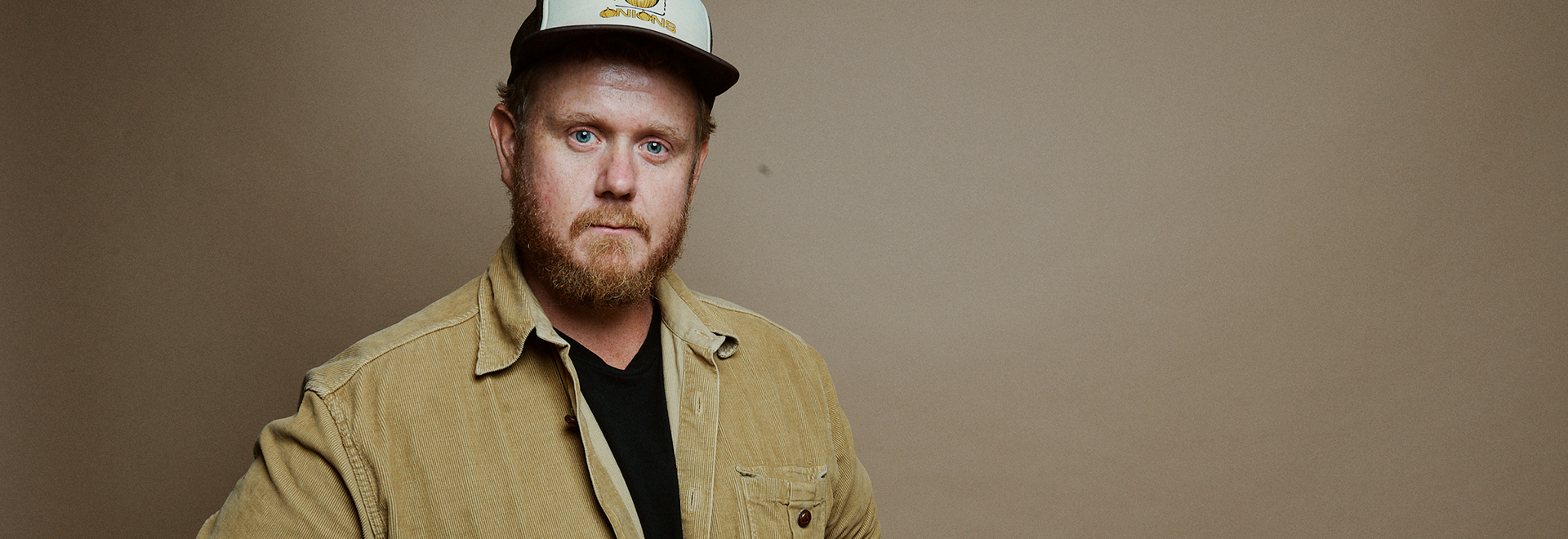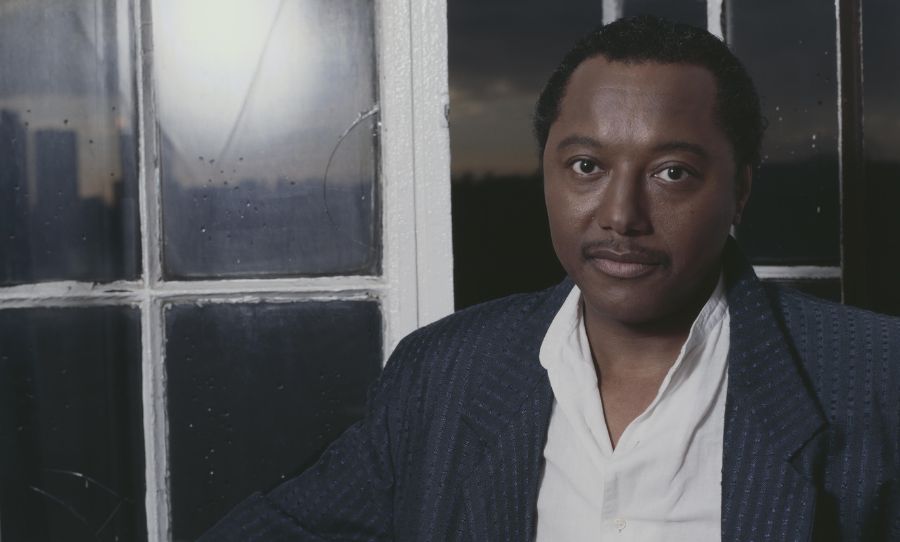Softly resolved melodies glazed in Australian charm and beauty, Tim Hart is a songwriter’s songwriter.
For Tim Hart, everything is wound up in stories. No matter where they came from or where they end up, the Brisbane-based songwriter makes sure to do these narratives justice along the way.
Akin to this mission comes his latest album, Winning Hand: a collection of thoughtful, deeply beautiful tales that can find themselves a home in any space. We caught up with the artist to learn more.
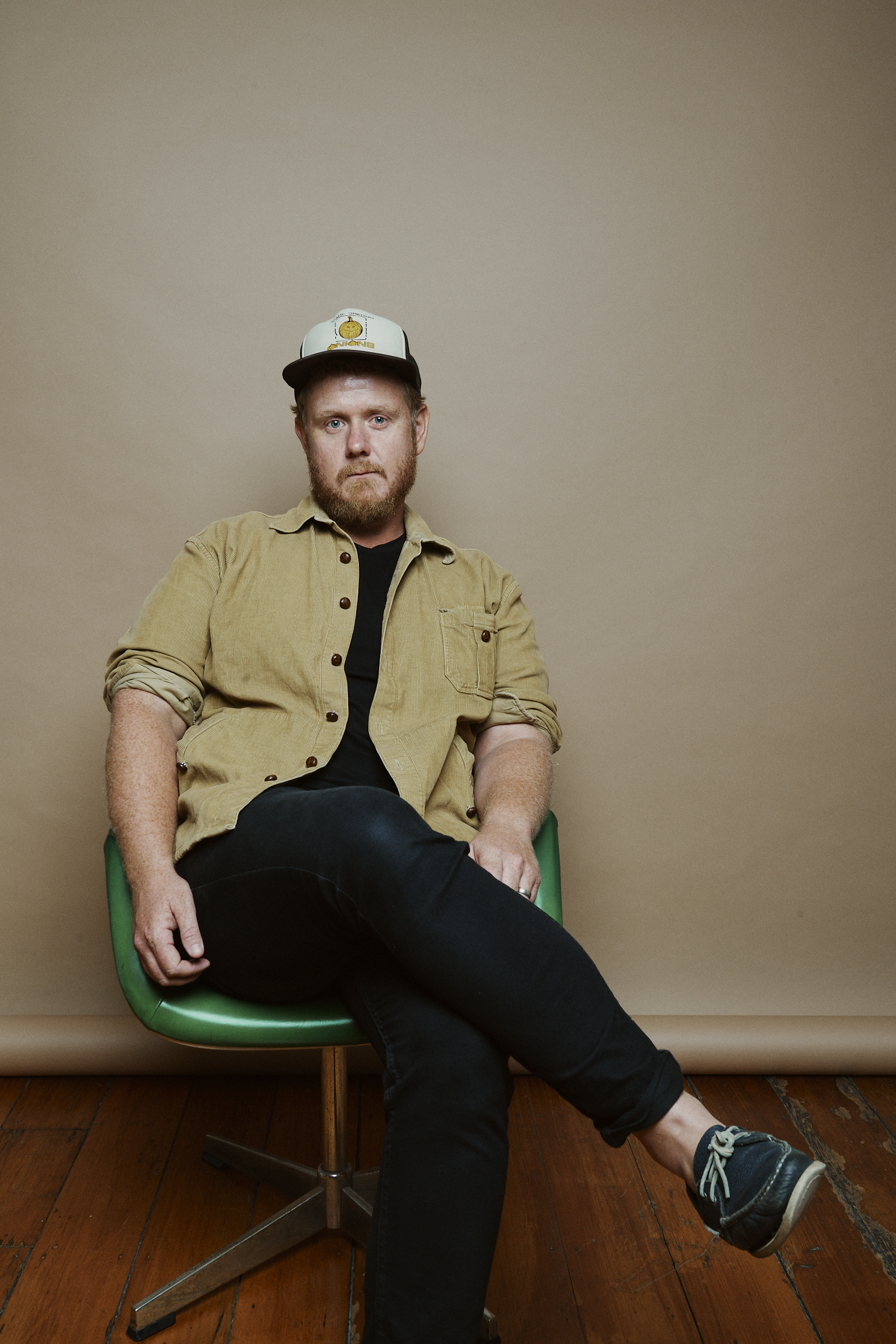
HAPPY: I read a really beautiful quote that you said about this new album. “Now more than ever I wanna be able to connect with people to share their stories and songs.” What’s the catalyst for you when choosing which stories to tell?
TIM: I think for me, especially now no one’s travelling very much. I feel like I’m a bit of a magpie in a way. I’ve collected these stories from people all around the world and they give me really good memories. I’ve always loved hearing stories, ever since I was a kid and I love reading, I’m a massive nerd. For me, being able to tell a story that I find interesting and inspiring but also, maybe slightly melancholic sometimes and not always tied up in a bow at the end, I think I gravitate towards those sorts of stories. And I don’t know if that’s what people wanna hear, but I think that’s the stories I’m interested in telling.
TIM: It’s so funny, you can write a song and tell a story and have a specific meaning around it but, to someone else, it doesn’t mean that. It means something else to them. That’s about my Aunt who passed away this year and they tell you that and that’s cool. I’m totally cool with that. I just think, as long as it’s something that connects and is reasonably emotive, that’s how I try to choose my songs.
HAPPY: Do you think that storytelling is what really drives your music?
TIM: I think so. I think maybe, in the past, it’s been just too focused on storytelling. I remember having a big argument with a mate of mine who’s a great singer. We were talking about, what’s the most powerful thing in music? Is it melody, is it phrasing, or is it lyrics? And he was fully on melody and I was fully on lyrics. And we came to the end, we were both drunk, we came to the end of the discussion and we realised we probably both need to give a little.
TIM: Because the power of melody is so strong. That’s often what draws people in. And the lyrics and the story often come later. It’s when, you know, those albums that you listen to and the first few listens you’re like it’s an alright album and then you become obsessed with it.
HAPPY: Yeah.
TIM: And it’s just like, you go so deep on it and you’re like: “Yeah! I have to hear this,” and then someone else hears it and they don’t react the same way because it’s one of those sort of 10 listen records. For me, these days I’m sort of focusing a little more on melody and phrasing and structure. But I never want a bad lyric to go on an album. I would be completely ashamed if I thought personally there was a lazy lyric kind of an album. I would feel ashamed, but you’re probably like “I’ve heard your stuff.”
HAPPY: [Laughs] Absolutely not.
TIM: I think we have a choice as writers to go back and it’s a common thing. I talk to a lot of other writers and there’s parts of songs where they’re like, “oh, why didn’t I change that?” And sometimes it’s laziness, and sometimes it’s just a blind spot, you’re too close to it. Try to avoid that.
HAPPY: Yeah, do you feel that on this album you were balancing a little bit more with the melody?
TIM: I think so. I’d like to think so. I love listening to old records and I realise that there’s always a powerful connection between the melody and the story. And often, that sort of gives you a sense of nostalgia or it gives you some sort of emotion and that’s really important. And then there’s guys who I really admire, and their stuff has almost no melody to some songs, but it’s still super powerful. So, I haven’t necessarily cracked the case but it’s definitely a work in progress with that stuff.
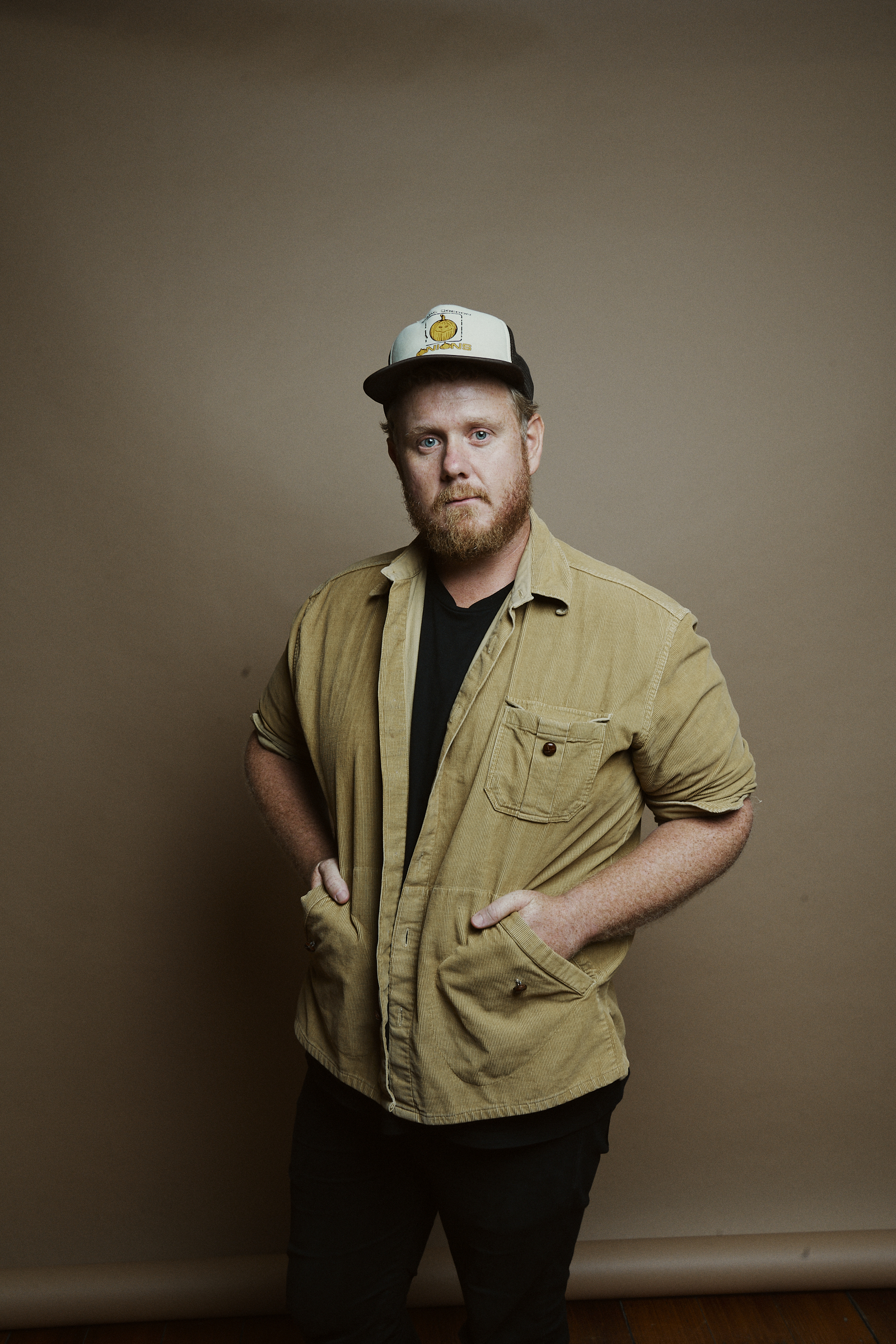
HAPPY: Well, I noticed with just the whole sound of the cuts that you’ve released so far, they’re very quintessentially you but they feel a bit different. Did you go into the studio with any intention to change anything up?
TIM: The big thing for me at this time, I’ve released two records previously. For those records I’ve pretty much played every instrument that I can play. I obviously haven’t played the violin ‘cause I’d be rubbish at it but everything else I’ve pretty much played on it. And this time I was like, I’d love to not play the drums and I’d love to not play the bass guitar on it and just see what someone else can bring and I guess be comfortable not being completely in control of everything.
HAPPY: Yeah.
TIM: And the rhythm section that I had. They brought so much, like, so much to the table like Dave Symes who plays bass for Boy & Bear, Evan Manella who plays drums for everyone, including Paul Kelly.
HAPPY: Oh, mad.
TIM: But he’s a really amazing drummer and they’re both quite charismatic characters so they weren’t backwards about coming forwards so they thought something needed shifting or fixing. And that was really cool. I in turn made them uncomfortable because we’d be doing a take of a song and they’re just learning, really, they’re learning it. And I’m like “that’s it.” And they’re like, “what do you mean that’s it?” And I’m like “well, I’ve done a pretty good vocal and I feel like it was a great band take.” And he’s like “but I played the wrong thing!” And I’m like “well, doesn’t matter.”
HAPPY: It sounds good, so.
TIM: [Laughs] When I started writing music, I was convinced by these producers that everything had to be perfect and in time and in tune. And it had to all sort of match a certain criteria, and I realised that was complete bullshit. And I worked with some amazing producers. This guy called Ethan Johns who’s done Laura Marling, he’s done Kings of Leon, Ray LaMontagne, heaps of people. And he was all about the spirit it would take, and all about how you would feel after you’ve finished playing that song. And, you’ll know this yourself, if you get to the end of a song and you’ve played it and there’s been an amazing energy in the room, there’s no better feeling in the world.
HAPPY: Totally.
TIM: So, why do we try to beat that out and make everything perfect? I guess I was like, again trying to let go of the control of that perfection and I probably made some of the guys uncomfortable slightly.
HAPPY: [Laughs]
TIM: It’s not perfect and that’s what I liked about it. But it’s taken me a long time to feel brave enough in myself to do that. And vulnerable enough.
HAPPY: Yeah, well maybe that’s what sounds different. Having that raw authenticity to the take.
TIM: And I love singing a live vocal, because there’s a chance you’re gonna get it wrong and you know like, or like in your head. But what’s wrong if you’re a little sharp or a little flat?
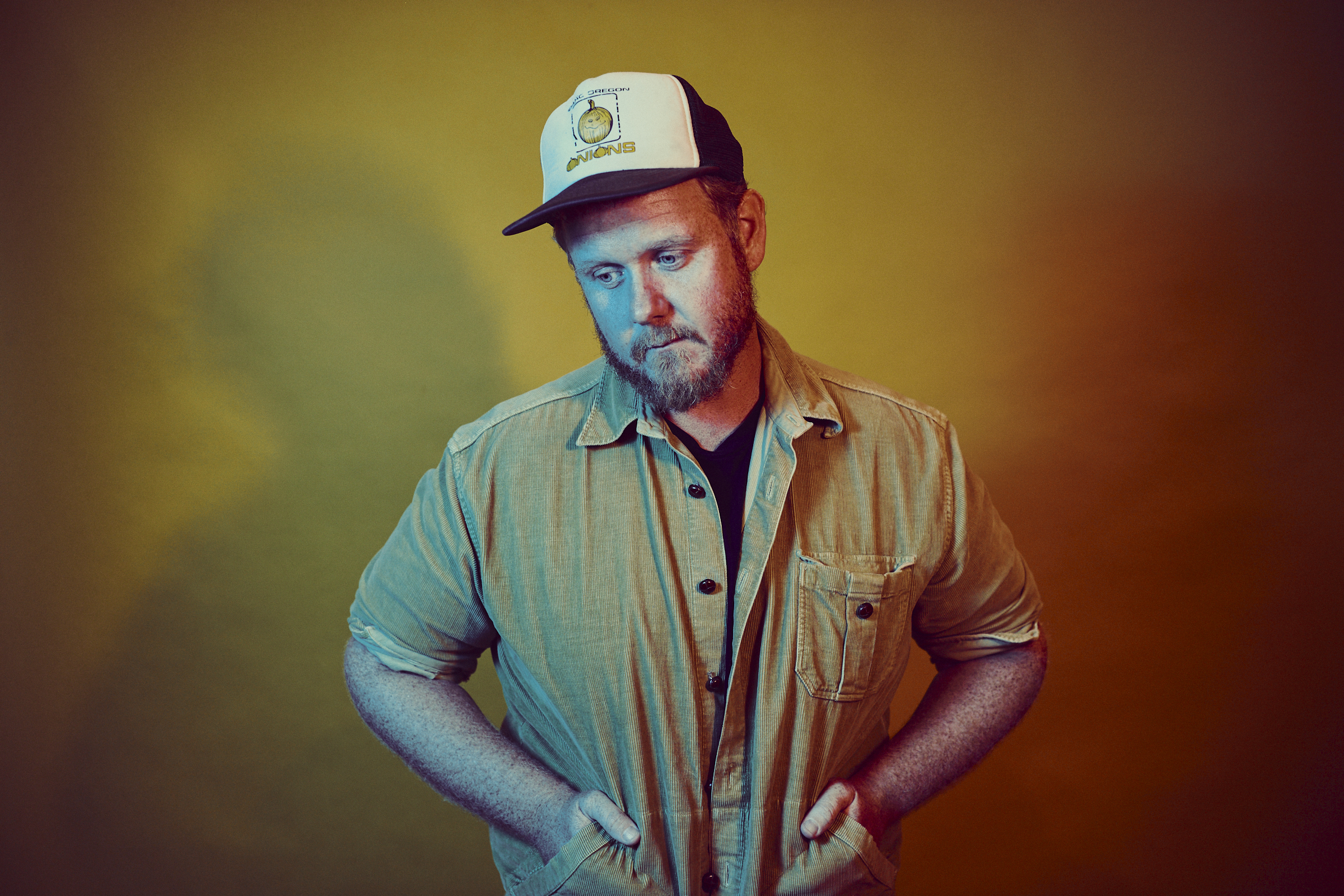
HAPPY: Absolutely. I completely agree. Could you tell us a little bit about the writing of this album? Did you go in with any intentions?
TIM: Yeah, so I’ve been writing this record over the last few years and mostly on the road. So I’d heard an interview, I think it was with Jeff Tweedy or something like that, and he was talking about how hard it is to write on the road.
HAPPY: Yeah.
TIM: And I was like, “surely you can write on the road. You can do it.” So I became interested in stealing away for a moment after a soundcheck or on an off day or at the back of the tour bus or something, and just writing something. Even when I was travelling through Europe on a solo tour with a guy called Stu Larsen, he’d be driving and I’d be in the passenger seat and I’m like; “I’m just gonna write some lyrics to see what happens.” And I guess it was not quite Byronesque, but I was trying to conceptually break this ceiling that I thought there was of not being able to write on the road and I was spending so much time on the road that I was like, “when am I gonna write a record?” And so, a lot of the songs have been written in different places around the world. I think that, for me, was what felt like it brought them together as a cohesive record. There were songs that didn’t make it in the end because they just didn’t fit that mould. And you know, your manager or someone close to you will go; “what are you doing leaving that song off the record?” and I’m like “it just doesn’t fit.”
HAPPY: Yeah.
TIM: We’ll use it for something later, don’t worry.
HAPPY: So all the songs were written on the road?
TIM: I think mostly all of them were written on the road, maybe with the exception of the first song I released. It was called Great Escape. I wrote that in the first part of lockdown. Everything except for that was written on the road.
HAPPY: Yeah, right. So the recording and producing and everything, that was all done during lockdown last year?
TIM: Oh yeah, it was last year!
HAPPY: I know it’s weird to think about [laughs]
TIM: That’s the outlier on the record, I recorded that up at my house in Brisbane.
HAPPY: Mhm.
TIM: And Simon from Golden Retriever actually gave me some advice with reasonably priced gear to buy so that I’d be able to record myself. But the majority of the record was done 2019 in November. I don’t even know why I recorded one extra song. I was like, “this is pretty good.” Sometimes I feel like there’s a chapter and each song you write in that chapter can only really be recorded on one album. And I’m like, “I probably won’t use it if I don’t use it now.”
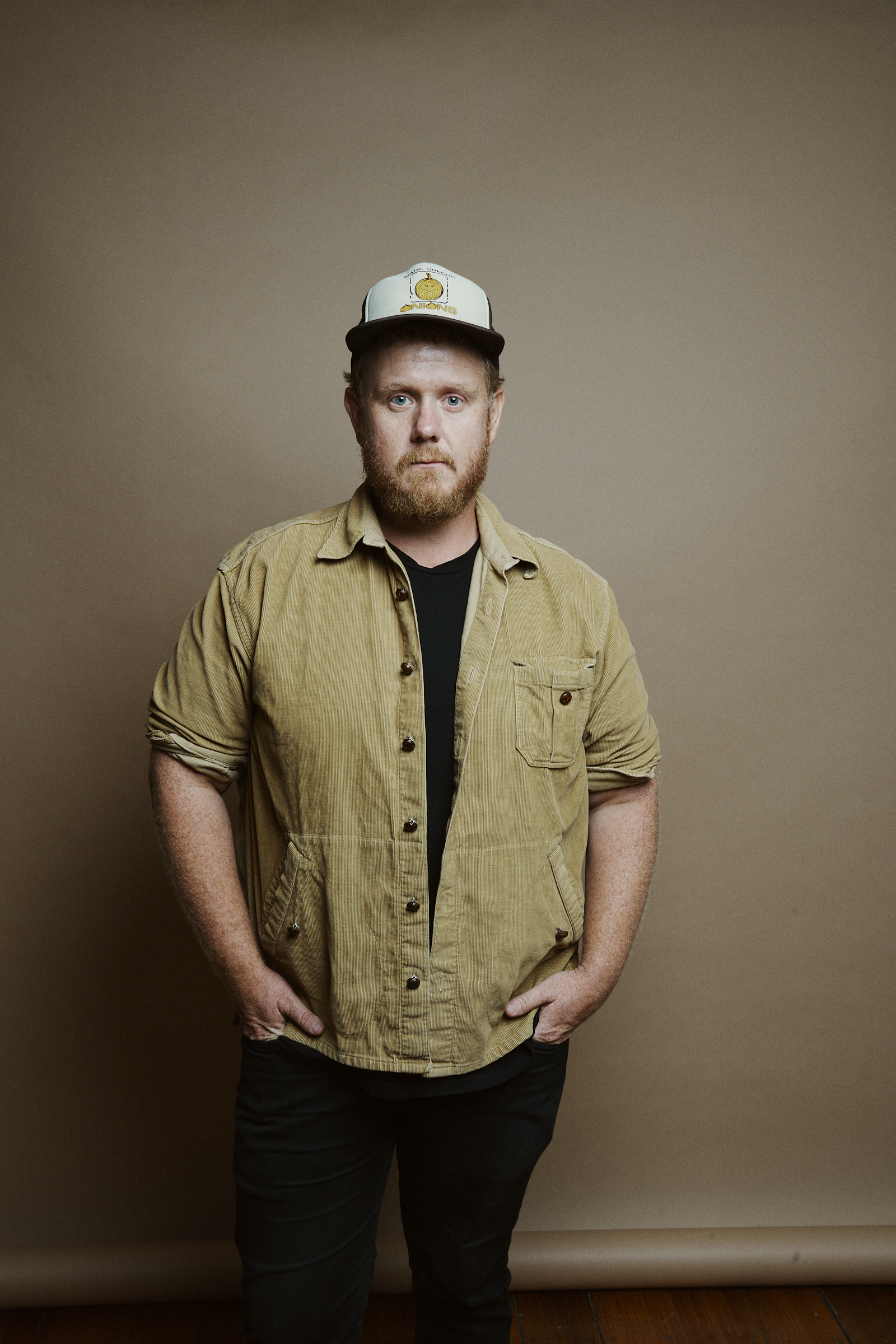
HAPPY: Yeah, so this chapter. This was when you were touring?
TIM: Yeah, touring could be anything up to ten months a year. Hopefully never again.
HAPPY: [Laughs]
TIM: But then, say you’re touring for six months in a year, then I sort of fit in between the gaps. And you might sort of end up having nine or ten months on the road. Yeah, whenever I could I would write. I actually wrote a lot. I was on one tour with something like 25 songs but I reckon only ended up using maybe five or six of them in the end. Some of them were horrific. [Laughs] Have you ever listened back to stuff and you’re like, “oh my gosh, what was I thinking?”
HAPPY: Yeah [laughs].
TIM: I feel like you’ve gotta write those to get the ones that feel right to you.
HAPPY: Yeah, absolutely.
TIM: Jeez, they’re hard to listen back to.
HAPPY: Yeah, I’ve got a lot of voice memos on my phone that I need to go through and purge because I just cringe. They’re so bad.
TIM: Yeah, I know. But I’ll tell you what, maybe it’s the contrast of when you really get it right. And you’re like, “oh, that’s cool. I can see progress there.” But then you write another shit one the next week.
HAPPY: You dropped the video for Steady as She Goes recently, which looks like it would’ve been a lot of fun to film.
TIM: Yeah, it was amazing.
HAPPY: Why did you choose to give a look into Queensland scenery for that one?
TIM: Primarily because we couldn’t come to Sydney. So, I had a brainstorm over a couple of videos with a mate – the other guy that’s in the video. And I was like, “man, you know, we’re in lockdown. It’s hard to actually go and get a film director that’s gonna be cool to work for a couple of days. So why don’t we do a couple months of learning and then shoot it ourselves?” So, I’m like, “what are the things you’ve been wanting to do for a while?” And he goes, “I wanna drive on the beach.” And I’m like, “fuck, let’s just do it.”
HAPPY: Yeah.
TIM: Let’s go and stay somewhere and see some beautiful stuff. And he did a bit of research a couple of weeks ago, he sent me some photos and I’m like, “let’s definitely do that.” In the past, for me, I’ve never really liked doing videos. I felt like there’s a certain vanity to video sometimes and I know I should think of it as a piece of art and just make it great for what it is.

TIM: But I’ve been like, I don’t really wanna be in videos and so I kind of flipped it on it’s head and I was like I’m gonna be in it, but it’s just gonna be a day in the life of two mates going on a little road trip. And so we just did it, and I had all this gear that I didn’t really know how to use like this thing called a gimbal, I didn’t even really know what that was, but it was a thing that holds the camera steady.
HAPPY: Yeah.
TIM: Doing all these angles and I dropped the camera and broke it at one point.
HAPPY: Oh no [laughs]!
TIM: My brother, he plays in a band, he’s a photographer and I’ve got some mates that are film directors and stuff and they all gave me bits of advice and we somehow managed to get it together. When I watch the video, it feels good to me and it feels very light and I think it captures the spirit of the song. Although, the song mentions Sydney and it’s shot in Queensland which is a bit weird but, yeah.
HAPPY: [Laughs] Well now that the album’s about to drop, are you writing still or are you planning on doing a few shows?
TIM: Yeah, we’re looking into shows. I’d love to be able to do a tour. We’ve been talking to venues and stuff and I feel like it’s gonna happen. It might be sort of closer to like May/June. But I’m super excited. I’m just excited to put out the record because it’s been an amazing journey for me over the last 12 months. Lockdown gave a lot of people time to reflect on what they actually wanted to achieve out of what they do. And that, for me, like what we talked about earlier, I do really wanna connect with people and that’s the best part of doing this. Writing music and being able to share it with people, it blows my mind that people want to hear it.
HAPPY: Yeah.
TIM: It’s a really great feeling and so to be able to share and do that is such a massive part of what I do but, you know, I guess we keep putting yours together and getting beaten down.
HAPPY: [Laughs]
TIM: I’m hoping that the tour’s gonna happen but, you know. If you talked to me a year ago I would’ve been like, “definitely! We’re touring everywhere” Yeah, it’ll happen, I just don’t know when.
HAPPY: Yeah, well, thank you so much for the chat.
TIM: Oh, thank you!
Grab your copy of Winning Hand here
Photos by Charlie Hardy
